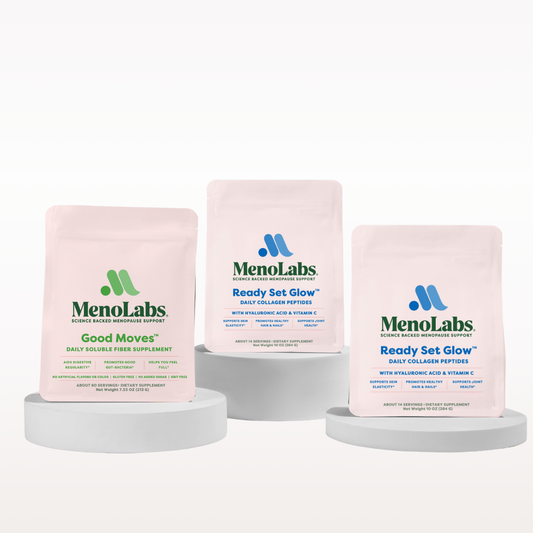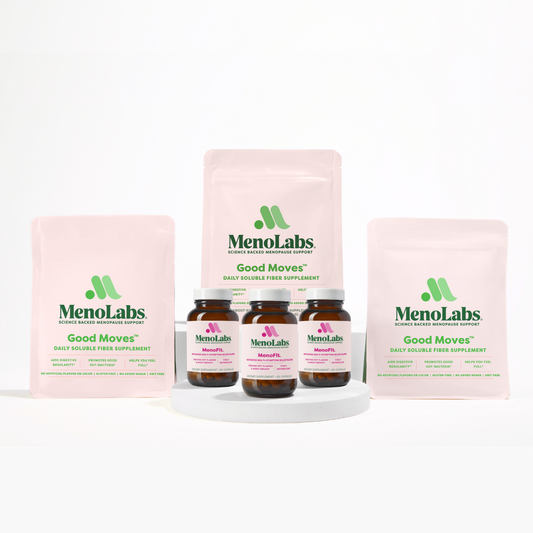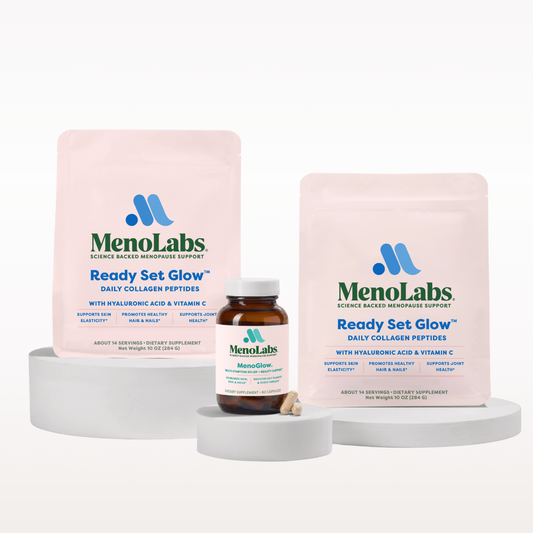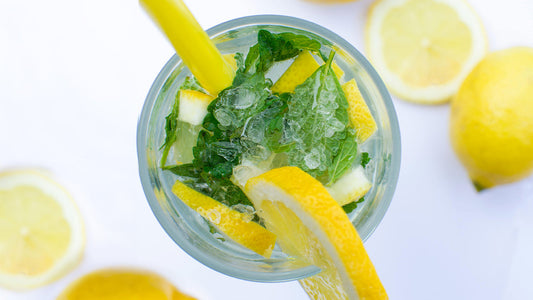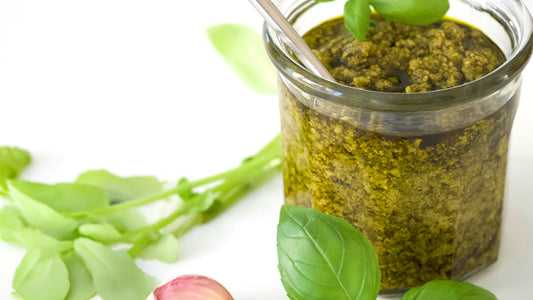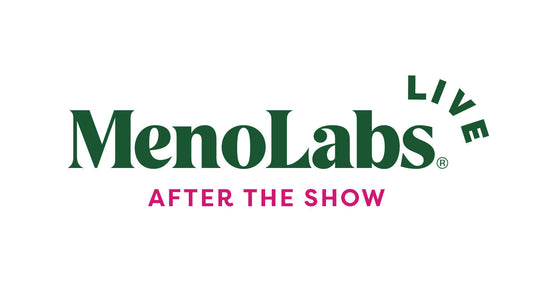Many people think that weight loss probiotics or supplements have a secret ingredient in them that makes them work like magic, but this isn't the case. The fact is, even the best probiotic supplements for weight loss only work well if you take them with the right foods, take the proper lifestyle steps, and activate them with prebiotic fiber. Without certain digestive health and proper conditions, your probiotics may not even have the chance to do their job.
So, what can you do to ensure that you're getting the most bang for your buck out of your probiotics?
1. Take Your Probiotics With The Right Foods
Probiotics are a form of good bacteria, and what beneficial bacteria need above anything else are nutrients. Each strain of probiotic is not as effective without the proper nutrition to help stimulate their growth and gut health. And the key nutrient that probiotics need is fiber. Fiber is a crucial food source to promoting probiotic health.
There are two types of fibers that the body needs: soluble and insoluble fibers, which can be found in the foods you eat and augmented in your diet with a fiber supplement. Soluble fibers are fibers that easily dissolve in water and turn into a gel-like substance that aids digestion in a number of ways. They can help improve your body's blood glucose levels and may help lower the risk of diabetes.
Insoluble fibers are fibers that do not dissolve in water. These fibers pass through your digestive tract and intestines to help soften stool so that waste can pass through your body easier. These fibers primarily help improve your body composition and maintain regularity in the digestive process, but they also help support the body's ability to process sugar, which also decreases the risk of developing diabetes.
When combined with the right probiotics strains that support weight loss, both of these fiber types help properly extract nutrients from food and expel waste from the body with more ease. Both of these fibers are necessary for strains of probiotics to function properly and help prevent excess fats from being stored as weight gain.
So, with this in mind, what are some fiber-rich foods you should try to incorporate into your diet?
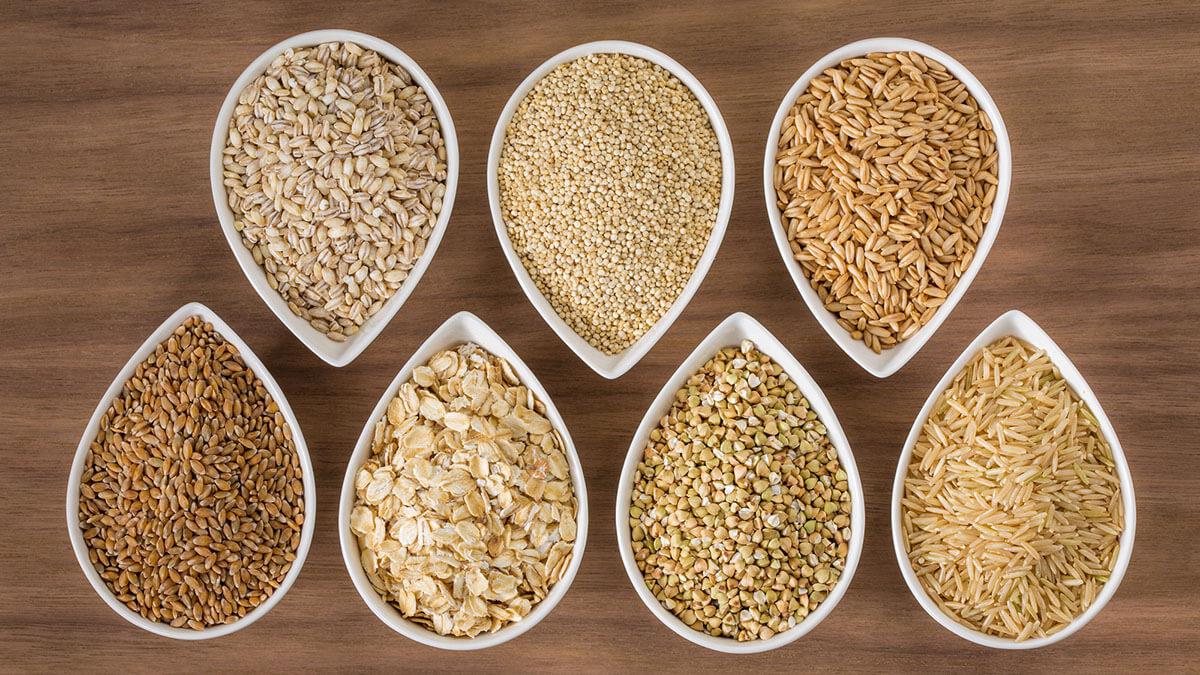
Whole Grains
Grains, especially whole grains, are rich in fiber. Whole grains are grains that possess three primary components: bran, endosperm, and germ. The bran is the outer layer of grains and is the part with the most fiber, as well as B vitamins and minerals. The endosperm is the middle layer, which is a starchy carbohydrate. It has some proteins, as well as B vitamins and iron. The germ is the core of the grain, and it's packed with nutrients like B vitamins, vitamin E, and healthy fats.
So why are whole grains a better source of fiber when it comes to grains? Unlike whole grains, refined grains only have an endosperm, which means they cannot provide you with the full breadth of vitamins, nutrients, and fibers that a balanced, healthy diet requires.
Some fiber-rich grains include barley, buckwheat, and rye, which are ingredients typically used in certain bread products. Roughly two grams of these grains can give you 10 percent or more of your recommended daily fiber intake. A few other sources of fiber that may be a bit easier to incorporate into your diet are oats, quinoa, and brown rice. While one gram of these grains may produce less than 10 percent of your daily value, they can still help contribute to a balanced food intake.
Fruits, Vegetables, and Legumes
Both soluble and insoluble fibers can be found in different fruits, vegetables, and legumes. Many of these fiber-heavy fruits, like apples, pears, raspberries, blackberries, and tomatoes, have most of their fiber in their skin. For example, one medium-sized pear can have between four to five grams of fiber — but if you were to peel the pear first, you'd get much less fiber. So whenever it's safe to eat a fruit or vegetable's skin, be sure to do so.
Other fruits, veggies and legumes that don't have edible skins, like bananas and avocados, can still be good sources of fiber. One avocado can give you around 10 grams of fiber. A medium artichoke can give you up to 10 grams of fiber. Just one cup of black beans can have up to 15 grams of fiber.
It's important to remember that if you're going to incorporate more fiber-filled foods into your diet, you should gradually increase your intake of them. This will offer you more health benefits and help reduce side effects like bloating, inflammation, and gas.
The Institute of Medicine’s guidelines recommends that women consume 25 grams of fiber per day for a balanced diet, especially menopausal women. So you have room to pick and choose what kinds of foods you want to eat on a daily basis and incorporate them to reach your healthy weight.
2. Drink More Water
But there's more to getting the most from your probiotics than just pairing them with the right foods. Even if you take your probiotics alongside a fiber-rich breakfast of oatmeal, fresh berries, sprouted grain toast, and the day's first cup of coffee, you may not be giving them enough help to metabolize.
When we wake up in the morning, our body and hormones are taking time to wake up, too. This means that certain processes are moving at a slower pace, including your body's metabolism.
Drinking water can help stimulate your metabolism and fuel your immune system, as water helps your body metabolize stored fatty acids into energy. In fact, some studies have shown that even slight dehydration can lower your metabolism fairly significantly and lead to low energy. So, by drinking a healthy amount of water each day, you can help lower the amount of stored fat in your body and avoid weight gain.
3. Avoid Mixing Medications
One of the biggest mistakes people make when taking probiotics or dietary supplements is to take them with other medications that can harm the bacteria. This specifically applies to antibiotics. Probiotics are meant to supply bacteria to the gut, whereas antibiotics are designed to kill bad bacteria in the system — but they can affect good bacteria, as well.
If you have to take antibiotic medication to treat certain illnesses, then take your antibiotics at least two hours before or after you take probiotics. This will ensure that the antibiotics don’t have the time to kill the probiotics in your system, as one will have entered the bloodstream long before the other is taken.
Weight loss is a process. It takes time and effort, but if you take the initiative to take the right steps, then it won't feel like a struggle.
Related Products
Blend Besties Bundle
Fresh Start Bundle
4.7 / 5.0
(553) 553 total reviews







